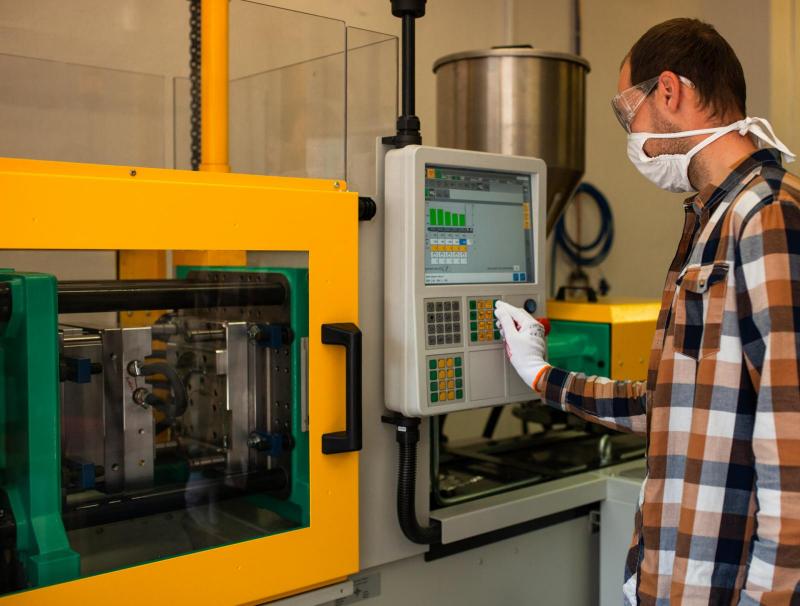BRNO UNIVERSITY OF TECHNOLOGY
Antonínská 548/1, 601 90 Brno
Czech Republic
phone numbers list
e-mail: vut@vutbr.cz
international@vutbr.cz
http://www.vutbr.cz/en



3D printers producing shielding components will replace BUT's faster injection moulding technology. This will make it possible to increase the daily production up to two thousand pieces and equip more of those who work in the first line. Technicians thus respond to the high demand, especially from the medical staff. However, other interested parties can also apply for shields.
In recent weeks, most faculties of BUT and also CEITEC BUT have joined 3D printing. It serves as a logistics place where printed parts and finished protective shields manufactured in the neighbouring FabLab digital workshop are collected. In recent days, however, volunteers have begun to struggle with a lack of material. Therefore, BUT researchers began to look for other and faster production options. In cooperation with the Brno company ACAM Solution, they produced a mould for an injection moulding machine, which will speed up the production of shields many times over.
“The shield consists of four parts, which are the headband, chin, plexiglass shield and rubber band. We add instructions to all this and of course, we disinfect the shields. Thanks to the injection moulding machine, we will increase production from two hundred up to about two thousand pieces a day. In addition, the shields will be mechanically and chemically more resistant," Luděk Žalud from CEITEC BUT, who sponsors the production, said.

The Faculty of Chemistry involved several laboratories for cooperation. In the polymer processing laboratory, manufactures polypropylene headbands are manufactured on an injection moulding machine, on which a plexiglass face cover and a head strap are attached. In this step, a second fixed part is produced at the same time, namely the reinforcement of the underside of the shield. Both fixed parts made on the injection moulding machine together with a transparent shield, strap and printed instructions are stored in prepared bags. "In order to be able to supply really high-quality
protective products, the sterilization process follows. A small amount of ozone is introduced into the bags under safe working conditions in the laboratory to disinfect all the contents. The bag is then thermally sealed. A small amount of ozone will gradually decompose in the bag within a few hours and ensure complete sterilization,” Tomáš Opravil from the Faculty of Chemistry, BUT said. The effectiveness of this sterilization is also tested at FCH by experts in microbiology.
The Faculty of Electrical Engineering and Communication Technology bought several kilometres of rubber bands and the Faculty of Mechanical Engineering offered students help at the machines. The nearby Technical Museum is also involved, where cut plexiglass for shields is cleaned and subsequently delivered to the Faculty of Chemistry. A number of commercial partners and workplaces have also joined.
"CEITEC coordinates the whole process and provided funding for its launch. The shields are distributed free of charge with the help of the City Municipality of Brno. We expect the production of about fifty thousand shields with this technology or even more if needed,” Jan Nedvěd, CEITEC BUT Secretary said.
Published: 2020-04-23
Short URL: https://www.vut.cz/en/old/f19527/d198138
BRNO UNIVERSITY OF TECHNOLOGY
Antonínská 548/1, 601 90 Brno
Czech Republic
phone numbers list
e-mail: vut@vutbr.cz
international@vutbr.cz
http://www.vutbr.cz/en


